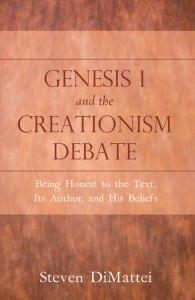When the author of the book of Deuteronomy sits down to write his text, he has Moses renarrate the story of Israel’s past from the revelation at Sinai to the current narrative setting on the plains of Moab. Renarrate because this “history” was already narrated in earlier textual traditions which served as the Deuteronomist’s sources. These earlier texts now make up parts of the books of Exodus and Numbers, and scholars have identified them as belonging to the Elohist and Yahwist.
In other words, stories from the older Elohist and Yahwist traditions, which are now preserved in the books of Exodus and Numbers, were used as sources for the Deuteronomist’s composition. Yet, on every single renarration of these stories, of this “history,” the Deuteronomist’s Moses radically alters them—indeed outright contradicts them—claiming to say and do things he never said and did, and narrating things that never happened, or happened in a manner completely opposite of what he claims.
For example, in his renarration of the Sinai revelation, the Deuteronomist’s Moses claims that Yahweh only gave the Ten Commandments to the Israelites at that time and no other laws were given. Deuteronomy 5:6-18 lists the Ten Commandments and then states the following:
These words [i.e., the Ten Commandments] Yahweh proclaimed to all your assembly at the mountain from the midst of the fire and the cloud and thick mist with a mighty voice, and he said no more!
This same conviction is expressed elsewhere in Deuteronomy and as we shall see is part of this author’s theological agenda in crafting his narrative.
Yet the Bible as it has come to be assembled, that is as a compilation of variant textual traditions, preserves other passages that also speak of the Sinai revelation and the giving of the Ten Commandments, Exodus 19-24 for example. It too narrates the events at Sinai. However, Exodus 20-24 explicitly present Yahweh giving the Ten Commandments (Ex 20:1-18) and a whole host of other laws (Ex 21-23), to which the people acknowledge their reception and willingness to obey (Ex 24:1-7). So while this textual tradition claims that Yahweh gave both the Ten Commandments and the law code at Sinai, the text of Deuteronomy, where Moses renarrates these events, claims that Yahweh only gave the Ten Commandments. How can this be?
What is furthermore shocking about this is that the author of Deuteronomy has this older textual tradition in front of him as one of his sources! In other words, the Deuteronomist knows that in the tradition he inherited, now preserved in Exodus 19-24, Yahweh gave both the Ten Commandments and the Laws to the people. Yet he composes a text wherein he has Moses renarrate this event in radically different terms, claiming that only the Ten Commandments were given at Sinai when clearly this was not the case, at least according to the earlier version.
The Deuteronomist has falsified his source, and (his) Moses has lied about what actually happened. Why would this author do this, here and in numerous other places? How are we to understand all of this? And what does this tell us about the Bible, how it was formed, and how its authors viewed its texts?





